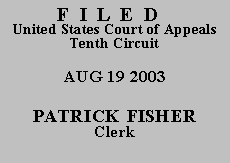

| UNITED STATES OF AMERICA,
Plaintiff - Appellee, v. RAFAEL DELGADO-MORALES, Defendant - Appellant. |
|
Defendant Rafael Delgado-Morales appeals the sentence imposed after his plea of guilty to illegal reentry following prior deportation, in violation of 8 U.S.C. § 1326(a). We exercise jurisdiction pursuant to 28 U.S.C. § 1291 and affirm.
Defendant contends the district court erred in calculating his criminal history score when sentencing him to a term of imprisonment of 57 months. In calculating his sentence, the district court awarded a total of six criminal history points three points for his sentences on two related drug-trafficking convictions and three points for his sentence on a failure-to-appear conviction. Defendant argues the sentences on the three prior convictions should have been considered "related" under U.S.S.G. § 4A1.2(a)(2) because the underlying charges were consolidated for trial, and sentencing on the three convictions occurred at the same time. Thus, defendant asserts his criminal history score should have been three rather than six.
Generally speaking, a district court's finding that prior sentences are "related" or "unrelated" for purposes of § 4A1.2(a)(2) is a factual determination that we review only for clear error. See United States v. Alberty, 40 F.3d 1132, 1133 (10th Cir. 1994). To the extent the district court's determination involves legal conclusions regarding the application and interpretation of the Sentencing Guidelines, including the meaning of the terms "related" and "unrelated," we exercise plenary review. Id.
Section 4A1.2 of the Sentencing Guidelines contains instructions for computing a defendant's criminal history score. In particular, subsection (2) provides that "[p]rior sentences imposed in unrelated cases are to be counted separately." U.S.S.G. § 4A1.2(2). In contrast, "[p]rior sentences imposed in related cases are to be treated as one sentence." Id. Application Note 3 explains when prior sentences are to be considered "related" or "unrelated":
Prior sentences are not considered related if they were for offenses that were separated by an intervening arrest (i.e., the defendant is arrested for the first offense prior to committing the second offense). Otherwise, prior sentences are considered related if they resulted from offenses that (A) occurred on the same occasion, (B) were part of a single common scheme or plan, or (C) were consolidated for trial or sentencing.
Id., cmt. n.3.
Defendant's drug-trafficking offenses occurred on November 4, 1989, when he hired a female to drive a van loaded with marijuana across the United States border from Mexico. The marijuana in the van was discovered at the point of entry by border patrol officers, and defendant was arrested that same day. After being released on bond on July 25, 1990, defendant failed to appear for trial on the drug-trafficking charges. He was arrested on March 4, 1991, and charged with failure to appear. Although it is true, as noted by defendant, that all of the charges were consolidated for trial and sentencing, that factor is irrelevant since the underlying offenses were separated by an intervening arrest. Thus, as directed by Application Note 3, the district court properly determined that defendant's sentence on the failure-to-appear conviction was "unrelated" to his sentences on the drug-trafficking convictions.
AFFIRMED.
Entered for the Court
Mary Beck Briscoe
Circuit Judge
*.This order and judgment is not binding precedent, except under the doctrines of law of the case, res judicata, and collateral estoppel. The court generally disfavors the citation of orders and judgments; nevertheless, an order and judgment may be cited under the terms and conditions of 10th Cir. R. 36.3.